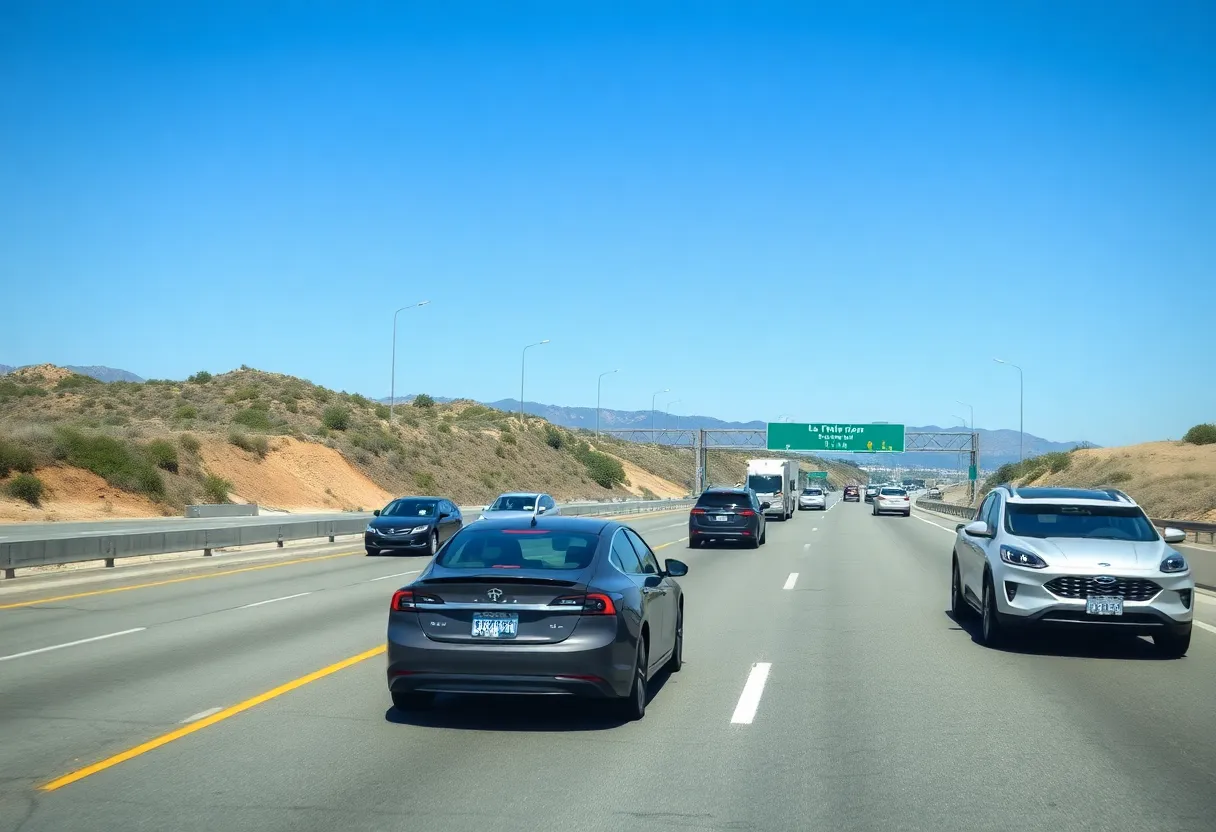News Summary
The U.S. Senate has voted 51-44 to revoke California’s vehicle emissions waivers, a decision that could impact national clean air efforts. While the Specialty Equipment Market Association praises the move, environmentalists and California officials criticize it, arguing it undermines crucial air quality standards. This legislation also affects states following California’s stricter standards and may pose health risks to millions of Americans. Critics are concerned about the potential economic impacts and the legality of the action, while supporters contend it protects jobs and consumers.
California – The U.S. Senate has voted 51-44 to revoke California’s vehicle emissions waivers, a move that could significantly impact national clean air efforts. This decision has generated praise from the Specialty Equipment Market Association (SEMA) but has been met with strong criticism from environmentalists and California state officials.
The legislation also affects nearly a dozen other states and the District of Columbia that have adopted California’s emissions standards. Under the Clean Air Act, California previously had the authority to set stricter emissions standards than those mandated at the federal level, a provision established during the presidency of Richard Nixon. The ruling is expected to be signed into law by the President soon, once it confirms the decision reached by the Senate.
California’s Air Resources Board (CARB) had implemented a mandate requiring 35% of new cars sold in 2026 to be zero-emission vehicles, with plans to move towards a goal of 100% by 2035. This ambitious target aimed to combat climate change and promote cleaner air across the state and potentially the nation. However, environmental advocates argue that the recent revocation will undermine nationwide efforts to achieve clean air standards and reduce pollution levels.
In contrast, SEMA has highlighted that repealing California’s more stringent standards protects over $100 billion in economic activity and supports approximately 330,000 jobs that depend on internal combustion engine technology. Supporters of the repeal contend that California’s standards place consumers and the economy at significant risk, arguing that they could limit choices for car buyers and lead to increased vehicle costs.
Opponents emphasize that the new legislation will likely result in poorer air quality and higher health risks for approximately 150 million Americans. California’s officials, including Governor Gavin Newsom and CARB Chair Liane Randolph, condemned the bill, stating that it jeopardizes vital clean air protections and poses threats to public health.
The legislation not only nullifies the previous permission the Environmental Protection Agency (EPA) granted for California’s stricter vehicle standards but also introduces higher taxes for vehicle owners. Electric vehicle owners will now face a new $250 annual tax, in stark contrast to the $82 gas tax paid by traditional vehicle owners. Critics warn that such financial burdens could discourage the adoption of electric vehicles, which are pivotal to transitioning to a cleaner energy future.
The repeal was made possible through the invocation of the Congressional Review Act by Republican lawmakers, although some nonpartisan experts, including the Senate Parliamentarian, have indicated that this legislative action could face legal challenges regarding its validity. Following this ruling, there are concerns that it may set a concerning precedent for congressional intervention in state environmental policies.
Additionally, the California Air Resources Board has stated that it has held waivers for 50 years without any prior revocations. This significant change may lead to potential legal challenges from California against the federal government if the legislation continues as anticipated.
California’s plans for an energy transition demand considerable advancements in infrastructure, which may become increasingly challenging under the newly enacted federal restrictions. The state’s ambitious goal to reduce greenhouse gas emissions and transition toward electric vehicle usage by 2045 could be severely hindered by this new legislation.
The unfolding situation continues to raise apprehensions regarding the future of environmental policy management, particularly as it relates to air quality standards across the United States. Critics argue that this decision may unravel years of state-level efforts to combat climate change, reshaping the landscape of clean air regulations and potentially limiting proactive actions in fighting air pollution.
Deeper Dive: News & Info About This Topic
- CBS News
- Wikipedia: Clean Air Act
- AP News
- Google Search: California emissions standards
- The Guardian
- Encyclopedia Britannica: California Environmental Protection Agency
- Car and Driver
- Google News: California emissions policy
- Politico
- Sacramento Bee

Author: STAFF HERE MISSION VIEJO WRITER
MISSION VIEJO STAFF WRITER The MISSION VIEJO STAFF WRITER represents the experienced team at HEREMissionViejo.com, your go-to source for actionable local news and information in Mission Viejo, Orange County, and beyond. Specializing in "news you can use," we cover essential topics like product reviews for personal and business needs, local business directories, politics, real estate trends, neighborhood insights, and state news affecting the area—with deep expertise drawn from years of dedicated reporting and strong community input, including local press releases and business updates. We deliver top reporting on high-value events such as Oso Fit 5K Fun Run and Community Health Fair, Walk Against Drugs & Community Fair, and National Night Out. Our coverage extends to key organizations like the Mission Viejo Chamber of Commerce and Providence Mission Hospital Mission Viejo, plus leading businesses in retail and education that power the local economy such as The Shops at Mission Viejo, Capistrano Unified School District, and Amazon Delivery Station. As part of the broader HERE network, including HEREAnaheim.com, HEREBeverlyHills.com, HERECostaMesa.com, HERECoronado.com, HEREHollywood.com, HEREHuntingtonBeach.com, HERELongBeach.com, HERELosAngeles.com, HERESanDiego.com, and HERESantaAna.com, we provide comprehensive, credible insights into California's dynamic landscape.





